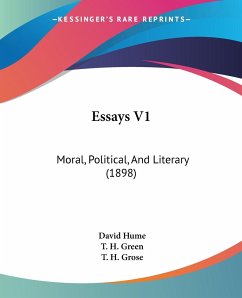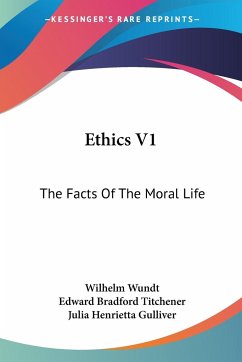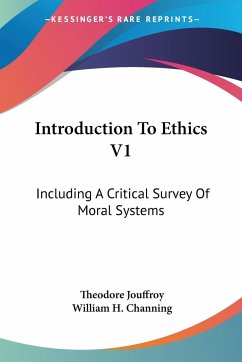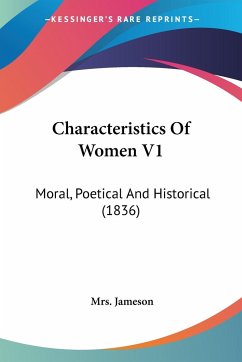
Essays V1
Moral, Political, And Literary (1898)
Herausgeber: Green, T. H.; Grose, T. H.
Versandkostenfrei!
Versandfertig in 1-2 Wochen
40,99 €
inkl. MwSt.

PAYBACK Punkte
20 °P sammeln!
Essays V1: Moral, Political, and Literary is a collection of essays written by Scottish philosopher David Hume, originally published in 1741-1742. This edition, published in 1898, includes essays on a variety of topics, including morality, politics, aesthetics, and literature. The essays in this volume are divided into three sections: moral, political, and literary. In the moral section, Hume explores the nature of morality and the foundations of ethical behavior. He argues that moral principles are not derived from reason, but rather from sentiment and emotion. In the political section, Hume ...
Essays V1: Moral, Political, and Literary is a collection of essays written by Scottish philosopher David Hume, originally published in 1741-1742. This edition, published in 1898, includes essays on a variety of topics, including morality, politics, aesthetics, and literature. The essays in this volume are divided into three sections: moral, political, and literary. In the moral section, Hume explores the nature of morality and the foundations of ethical behavior. He argues that moral principles are not derived from reason, but rather from sentiment and emotion. In the political section, Hume discusses the principles of government and the role of the state in society. He argues that a well-ordered society requires a balance of power between the government and the people, and that individual liberty is essential for the preservation of human dignity. The literary section includes essays on topics such as tragedy, epic poetry, and the nature of criticism. Hume argues that art should be judged by its ability to evoke emotional responses in the audience, rather than by its adherence to strict rules or conventions. Throughout the book, Hume's writing is characterized by his clear and concise style, his insightful observations, and his commitment to rational inquiry. This volume is a valuable resource for anyone interested in the history of philosophy, ethics, politics, or literature.In Two Volumes.This scarce antiquarian book is a facsimile reprint of the old original and may contain some imperfections such as library marks and notations. Because we believe this work is culturally important, we have made it available as part of our commitment for protecting, preserving, and promoting the world's literature in affordable, high quality, modern editions, that are true to their original work.












